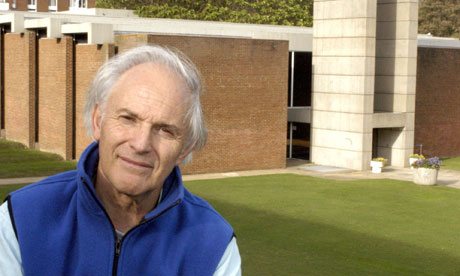By the standards of very clever men who believe some very silly things, Harry Kroto is a quite unremarkable scientist. Unlike some other Nobel prize winners, he is not an enthusiastic Nazi, a Stalinist, a eugenicist, or even a believer in ESP. He did play a prominent, and I think disgraceful part in the agitation to have Michael Reiss sacked from a job at the Royal Society for being a priest. But the video of his speech at the Nobel laureates meeting this year in Lindau, Austria, is something else. Much of it is great stuff about working for love, not money; and about the importance of art, but around eight minutes in he goes off the rails. First there is a slide saying (his emphases): "Science is the only philosophical construct we have to determine TRUTH with any degree of reliability." Think about this for a moment. Is it a scientific statement? No. Can it therefore be relied on as true? No.
But formal paradoxes have one advantage well known to logicians, which is that you can use them to prove anything, as Kroto proceeds to demonstrate. Or, as he puts it: "Without evidence, anything goes." Remember, he has just defined truth (or TRUTH) as something that can only be established scientifically. So nothing he says about ethics or intellectual integrity after that need be taken in the least bit seriously. It may be true, but there is no scientific way of knowing this and he doesn't believe there is any other way of knowing anything reliably.
Note how this position completely undermines what he then goes on to say – that "the Ethical Purpose of Education must involve teaching our young people how they can decide what they are being told is true" (his caps). Again, this is not a scientific statement, and therefore cannot, on Kroto's terms, be a true one.
The rest of us, of course, are perfectly free to believe that education should involve the promotion of critical thought, or at least to consider the question seriously. We are under no obligation to believe anything half so silly as that science is the only road to truth. We can reasonably argue that there are lots of ways to establish truth that are not scientific. Obviously they rely to some extent on the sifting and weighing of evidence, but that doesn't make them part of science, or else every member of a jury would be a scientist.
In a similar way, we can believe that ethical truths exist, even though these clearly aren't scientific, or the products of science; but Kroto can't. Not that this stops him. Like anyone else who is sane he talks as if ethical truths do matter, and exist.
When he goes on to say: "The teaching of a sceptical, evidence-based assessment of all claims without exception is fundamentally an issue of intellectual integrity," he absolutely believes that what he's saying is true (and so do I for that matter). But he has no scientific grounds whatever for believing it could be true and it is impossible to imagine any.
What makes this even funnier is that he then starts talking about the Galileo affair. He asks his audience how many of them could recapitulate Galileo's arguments for the Earth's going round the sun. Hardly any can. "See!" he said. "You've accepted it. You've accepted it without evidence. And 70-80% of people do that."

